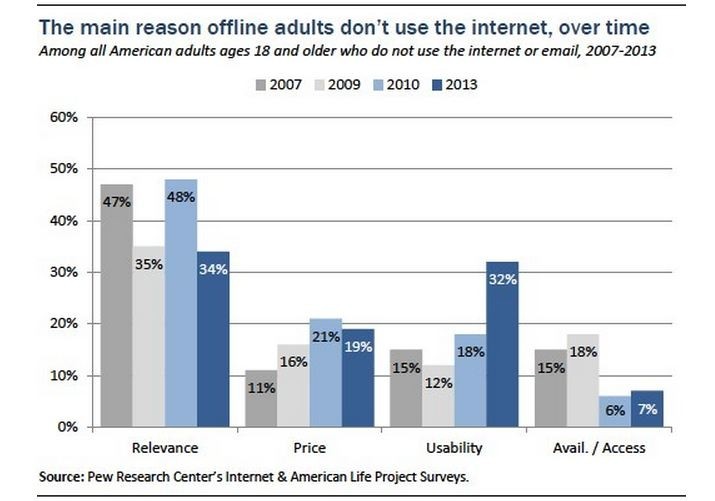To most regular TechSpot readers, the thought of having no internet might be a little disconcerting. After all, many of us use the web day in and day out to connect with friends, play online games, conduct research, manage our finances, and organize our lives.
However, a new study by research firm Pew has discovered that 15% of Americans don't have Internet, while 5% think that the resource is completely "irrelevant". It's important to note that the respondents were all aged 18 and over, so the slew of children who have grown up in the technological era aren't included in these figures.

To learn more about these results, Pew asked people their reasoning for not going online. The most popular reason was that it's a waste of time, it's not relevant to them, or they have no need or interest in the service (34% of non-internet users). Other reasons stemmed from the high setup and service fees, living in an inaccessible area, or simply finding the internet overly complicated to use. Several respondents (32%) explained that going online can be a frustrating experience, and that they constantly worry about problems such as spam, spyware, and viruses.
Furthermore, for those that do have internet access, their connectivity methods vary greatly. 76% of American adults connect from home, while 9% connect from elsewhere. Understandably, a lack of finances was the main reason why these individuals did not have a home computer, or chose to access internet from an outside source (44%).
Other interesting tidbits are that 3% of internet users still use dial-up, and that 44% of non-internet users have asked others to look something up on their behalf.
Be sure to read the full Pew report here.